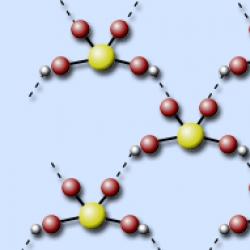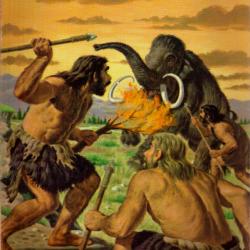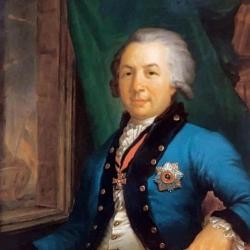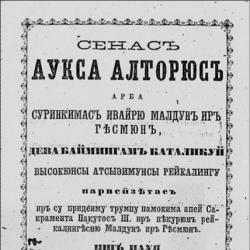The most famous poet of the Silver Age, Alexander Alexandrovich Blok. Presentation on the topic “Alexander Blok - poet of the “Silver Age”” Blok and the Silver Age
Slide 2
Slide 3
Alexander Blok - poet of the Silver Age.
In the history of the formation of true, real Russian culture, the “Silver Age” occupies one of the special places. Alexander Blok, in turn, is the brightest representative of this time.
Slide 4
OH, I WANT TO LIVE CRAZY!
EVERYTHING EXISTS IS TO ETERMINATE,
THE IMPERSONAL IS TO HUMANIZE,
UNFORTUNATE – IMPLEMENT!
Slide 5
BECAUSE I ABSORBED THE SPIRIT OF RUSSIAN HUMANISM WITH MY MOTHER’S MILK
Family of the rector of St. Petersburg University A.N. Beketov.
Slide 6
First collection of poems
First volume
Cycle "Crossroads";
Cycle “Poems about a Beautiful Lady”
Third volume
"It's all about Russia"
Second volume
Cycle "Bubbles of the Earth";
Cycle "City"
Slide 7
The block reveals the main meaning of the stages of the path he has traversed and the content of each of the books of the trilogy:
“...this is my path, now that it has been completed, I am firmly convinced that this is due and that all the poems together are a “trilogy of incarnation”
(from a moment of too bright light - through the necessary swampy forest - to despair, curses, “retribution* and ... - to the birth of a “social” man, an artist, courageously looking the world in the face..)".
Slide 9
"Beautiful lady"
Dawn, star, sun, white color -?
Opening circles -?
Morning, spring -?
Winter, night - ?
Blue, purple world -?
Slide 10
Slide 11
The story of earthly, very real love is transformed into a romantic-symbolic mystical-philosophical myth.
It has its own plot and its own plot.
The basis of the plot is the opposition of the “earthly” (lyrical hero) to the “heavenly” (Beautiful Lady) and at the same time the desire for their connection, “meeting”, as a result of which the transformation of the world, complete harmony, should occur.
However, the lyrical plot complicates and dramatizes the plot. From poem to poem there is a change in the hero’s mood: bright hopes - and doubts about them, expectation of love - and fear of its collapse, faith in the immutability of the Virgin’s appearance - and the assumption that it can be distorted (“But I’m afraid: you will change your appearance” ).
Slide 12
“I enter dark temples...”
What is the emotional atmosphere of the poem?
By what means is it created?
What are the subject matter of the poem and its color scheme?
How does the lyrical hero of the poem appear?
Is the appearance of the Beautiful Lady drawn?
By what means is her image created?
Slide 13
Slide 14
Slide 15
Slide 16
Slide 17
Slide 18
Slide 19
Slide 20
The name we proposed, SYMBOLISM, is the only one suitable for the new school, only it conveys without distortion the creative spirit of modern art
Paris. Newspaper "Figaro"
Jean Moreas "Manifesto of Symbolism"
Human perception of the world is imperfect, therefore the reality depicted is erroneous
The secrets of the world can only be understood emotionally and intuitively
A reflection of this “highest truth” and at the same time a way to comprehend it is a hint symbol
From the history of symbolism
Slide 21
Poetics of hints, shades. The concept of a symbol as an image. Symbol as a polysemantic allegory
Write to us
Russian poet of the Silver Age Alexander Alexandrovich Blok was born on November 28, 1880 in St. Petersburg, in the family of a professor of philosophy and law.
The boy was raised by his grandfather, the famous botanist A. N. Beketov.
At the age of 5, Blok begins to write poetry.
After high school in 1898, Alexander Blok entered St. Petersburg University at the Faculty of Law, but later transferred to the Faculty of History and Philology, from which he graduated in 1906 in the Slavic-Russian department.
During this period, he became close to the symbolists Dmitry Merezhkovsky, Zinaida Gippius, Valery Bryusov and Andrei Bely. The poet published his first cycle of poems, “From Dedications,” while still a student in the magazine “New Way.”
At the same time, his first book of poems, “Poems about a Beautiful Lady,” was published, dedicated to Lyubov Dmitrievna, the daughter of the famous chemist Mendeleev, whom Blok married in 1903.
The second book of poems was published in the period 1904-1908, dedicated to the poet’s experiences and thoughts on the topic of revolutionary events that took place in the country and greatly influenced Blok.
The theme of Russia and worries about the fate of the people are reflected in his work - in the collections “Motherland”, “On the Kulikovo Field”, “Land in the Snow”, in the poems “Scythians”, “Retribution”.
In the summer of 1917, Blok began work on a manuscript, which he considered as part of the future report of the work of this commission; these materials were published in the form of a book in 1921 under the title “The Last Days of Imperial Power.”
Blok enthusiastically accepted the October Revolution of 1917 and immediately took an active civic position.
The new government widely used the name of the poet; in 1918-1920, Blok was appointed and elected to various positions in committees and commissions.
But he did not abandon literary creativity.
In January 1918, his poems “The Twelve” and “Scythians” were published, and then a number of poems, lyrical fragments “Neither Dreams nor Reality” and “Confession of a Pagan”, feuilletons “Russian Dandies”, “Fellow Citizens”, “Answer to the Question of red seal."
But the poet’s financial situation forced him to seek not only literary income, but also public service.
Since 1918, he collaborated with the Theater Department of the People's Commissariat for Education, in April 1919 he moved to the Bolshoi Drama Theater and at the same time was a member of the editorial board of the publishing house "World Literature", in 1920 he became chairman of the Petrograd branch of the Union of Poets.
In February 1921, at an evening in memory of Alexander Pushkin at the House of Writers, Blok gave his famous speech “On the Appointment of a Poet.”
The ever-increasing volume of work undermined the poet's strength - he developed serious cardiovascular disease and asthma.
In the spring of 1921, Blok asked for an exit visa to Finland for treatment, but the Politburo of the Central Committee of the RCP (b), at whose meeting this issue was discussed, refused him.
On August 7, 1921, the poet Alexander Alexandrovich Blok died in Petrograd, where he was buried at the Smolensk cemetery. In 1944, the poet’s ashes were reburied on the Literary Bridges of the Volkovsky Cemetery.
In 1980, in the house on Dekabristov Street, where the poet lived and died in recent years, the museum-apartment of Alexander Blok was opened.
Liked?! Like and subscribe to our RATNIK channel on Yandex.Zen
The most famous poet of the Silver Age, Alexander Alexandrovich Blok
Why did I choose this particular poet?
Among the poets of the Silver Age, many gained fame and glory. But of all of them, I remember Alexander Alexandrovich Blok the most. I chose it for several reasons.
Firstly, his poems contain mysterious images that are not understandable to everyone, which interested me. Just look at the poems “The Stranger” and “The Child is Crying...”. Secondly, like many of his compatriots, he did not remain indifferent to the period of the revolution, which also cannot be ignored. Thirdly, I was touched by the feeling with which Blok writes about the Motherland. Calling his country poor, he still admits that he cannot find a better homeland than Russia.
Many poets admired Blok's work. And I think they admired it for good reason.
Bright moments of creativity in Blok’s life.
Blok worked at the borderline of two worlds. He turned out to be the last great poet of old, pre-October Russia, who completed with his work the poetic quest of the entire 19th century, and at the same time his name opens the first, title page of the history of Russian Soviet poetry.
In the twenty years that separate Blok’s first serious poems from “The Twelve” and “Scythians,” the content of his poetry and his creative style itself have undergone profound changes. Detached from real life, seemingly completely immersed in his vague spiritual experiences, how Blok began his literary career, grew into a truly great national poet, whose work is covered in the historical, social, everyday storms of his formidable, turning point, revolutionary time.
If we compare Blok’s youthful lyrics with his mature poems, at first glance it may seem that we are dealing with two different poets. Here, for example, are verses characteristic of the young Blok, speaking about the experiences of a solitary soul and similar to solemn prayers with an obscured meaning:
“I kept them in the border of John,
The motionless guard kept the fire of the lamps.
And here She is, and to Her is my Hosanna-
The crown of labor is above all rewards...”
But here is how deeply and at the same time simply and clearly he wrote thirteen years later, reflecting on the fate of his motherland:
“Centuries pass, war roars,
There is a rebellion, villages are burning,
And you are still the same, my country,
In tear-stained and ancient beauty.”
The dramatic changes that took place in Blok’s work were dictated by life itself, the very course of historical reality, which determined the direction of the poet’s life and literary path. This path was complex and difficult, full of many sharp contradictions, but direct and steady. Blok himself very correctly and accurately said that this was “a path among revolutions.”
In Blok’s youthful lyrics (“Poems about a Beautiful Lady”), everything is enveloped in an atmosphere of mystical mystery and a miracle occurring. Everything in this lyric is timid and dark, unsteady and foggy, sometimes elusive: only a hint of a spring song, only a piece of bright sky, some reflections, some clicks... And all these are signs of otherworldly hopes for a universal incomprehensible miracle, for the appearance The Eternal Virgin, the Beautiful Lady, in whose image for Blok a certain unified divine principle was embodied, which was supposed to “save the world” and revive humanity to a new, ideally perfect life:
“I enter dark temples,
I perform a poor ritual.
There I am waiting for the Beautiful Lady
In the flickering red lamps..."
This theme of expectation and anticipation of some miraculous changes dominated Blok’s youthful lyrics. The poet already then felt a vague anxiety, caught its “signs”, even then he noticed that the “storm of life” was growing around him, but he was still afraid of this storm and tried to hide from it in the ideal world of his dreams and fantasy, where there are no tears, no torment, no blood, but only music, roses, azure, smiles, fairy tales and dreams.
Even his “earthly”, very real experiences and impressions, young Blok tried to reinterpret in the spirit of mystical faith, as something “super-real”. However, the living feeling of a true poet sometimes resisted this and stubbornly grew through the fragile shell of the conventional, mythologized world in which he resided. A concrete, sensual, emotional, immediate sense of life penetrated more and more powerfully into Blok’s lyrics.
The rise of the liberation movement in Russia did not pass without a trace for the Bloc. In the context of the revolutionary events of 1904-1905, his previous indifference to socio-political life was replaced by a greedy interest in the widespread popular struggle for freedom. Revolutionary events were reflected in a number of Blok’s works. On his poems about the city there are crimson reflections, symbolizing the anxiety that is increasingly taking hold of him. The crimson-red color, which, in the poet’s mind, colors the outwardly elegant but internally rotten world of the “well-fed,” is perceived as a symbol of revolution.
The revolution of 1905 was deeply experienced by Blok and played a huge, one might say, decisive role in his life and destiny. She brought the poet out of the state of solitude and contemplation in which he had been for a long time, showed him the face of a rapidly changing life, awakened in him a sense of blood ties with the people and an awareness of public responsibility for his writing.
Mystical visions in mysterious temples are being replaced by real, unvarnished pictures of human grief:
“We met you in the temple
And they lived in a joyful garden,
But the stinking palaces
Let's go to damnation and labor.
We've passed all the gates
And in every window they saw,
How hard the work is
On every bent back..."
Blok’s attention is increasingly attracted by “new people” who are rising into the arena of history “from the darkness of the cellars” - working people, creators of tomorrow. A sense of social activity awakens in the poet. He himself is looking for civic courage, and angrily denounces those who remain blind and deaf to the demands of life:
“I see: your maidens are blind,
The young men have a fireless gaze,
Back! Into the darkness! Into the dark crypts!
You need a whip, not an axe!”
Blok does not spare himself either because he lacks courage, because, sincerely grieving for the poor and poor, he both wants and does not dare to “kill”:
“Take revenge on the cowardly who lived without fire,
Who humiliated my people and me so much!
Who locked the free and the strong in prison,
Who did not believe my fire for a long time.
Who wants to deprive me of a day for money,
Buy dog obedience from me...”
The poet's appeal to the theme of his homeland, its historical path, its future fate was connected for him with the experience of the rise and defeat of the first Russian revolution. In July 1905, the wonderful poem “Autumn Will” was written, in which the main tone of all of Blok’s patriotic lyrics sounded:
“Take shelter in the vast distances,
How can I live and cry without you”! -
He exclaimed, addressing Russia. He spoke about his homeland with endless love, with heartfelt tenderness, with aching pain and bright hope.
A broad, multi-colored picture of his native land, full of life and movement, is formed in Blok’s poems. Vast Russian distances, endless roads, deep rivers, gray huts, fires in the meadows, wild blizzards and blizzards, bloody sunsets, fiery round dances and dashing harmonicas, factory chimneys and whistles, factories and cities.... This is Blok's Russia.(1.5- 19)
Criticism of works by other poets.
ML. Voloshin:“The poem “The Twelve” is one of the wonderful artistic translations of revolutionary reality. Without changing either himself, or his techniques, or forms, Blok wrote a deeply real and - surprisingly - lyrically objective thing. They say that Blok is a Bolshevik, that he is friendly with the Bolshevik bosses, but I don’t think that he could be a Bolshevik according to the program, essentially, because what does a poet like Blok care about the frenzied struggle of two human classes so distant to him... ."(3,1)
V.V. Mayakovsky:“The work of Alexander Blok is an entire poetic era, an era of the recent past.
The most famous master symbolist Blok had a huge influence on all modern poetry. Blok honestly and enthusiastically approached our great revolution, but the subtle, elegant words of the symbolist were not able to withstand and lift its heavy, real, crude images. In his famous poem “The Twelve,” translated into many languages, Blok went crazy.” (3.1)
E.G. Etkind:“The ghostliness of the stranger shines through the contrast. This is not just a lady in a black dress with ostrich feathers on her hat.
This poem is about prose and poetry, about the opposition and unity of hostile and tragically related elements, about the transformative power of poetic fantasy, in some highly spiritual sense close to the transformative influence of wine, but, although the poet ends the poem with the words: “You, right, a drunken monster. / I know: the truth is in the wine,” his intoxication, his “wine” is different from that with which “drunkards with rabbit eyes” intoxicate themselves. (5.1) The power of this poetic, that is, allegorical, wine is that it through the dead prose of vulgarity allows you to see the poetic essence of the world - a single, holistic world. "(3.1)
Ivanov-Razumnik:“...The snowstorm of the revolution begins from the very first lines of the poem. And from the very first lines, her black sky and white snow are, as it were, symbols of the duality that is happening in the world, that is happening in every soul.
“Black evening”
White snow.
Wind, wind!
A person can’t stand on his feet...”(4.1)
Black evening, White snow.
This is what the poem is all about. And against this background, through a white veil of snow, the poet paints with black, clear strokes a picture of “revolutionary Petersburg” at the end of 1917.
And against this background, under the looming black sky, under the falling white snow - “twelve people are walking”... Oh, the poet does not “poeticize” them at all! Against. “There’s a cigarette in my teeth, I’ve got my cap on, I need an ace of diamonds on my back!” (3.1)
G.V. Ivanov:“...In “Poems about Russia” almost everything is perfect. How, we will be asked, is this not entirely new poetry? Where did the mistakes and failures that were in Blok’s early poems go? Yes, and most of all, the poet’s impeccable skill was reflected precisely in terms of the book. The choice of verses was made in such a way that we would not otherwise dare to define it as “the providence of taste.”
There are twenty-three poems in the book, and almost every one is a new stage in the lyrical knowledge of Russia. From the first vague and bitter revelations to the final lines:
“And again we come to you, Russia,
We have arrived from a foreign land.” (2,1)
How do we remember Blok?
A.A. Blok was truly one of the most famous poets of the Silver Age. Intelligent, wise, sincere, mysterious, revolutionary and at the same time romantic and tender, he remained in the memory of millions, and perhaps even more people. His works can transport the reader to the vast expanses of the Russian land, and during the period of the revolution, and even immerse them in a mysterious and enigmatic atmosphere. While working on my report, I found out something new about Blok. Previously, I could not even think that such a poet as Blok could live in his imaginary world of dreams and fantasies. In fact, it was just an illusion that he lived for a long time and persistently. And yet, the turbulent events of that time, changes in society forced the poet to “grow up” and gave impetus to a new, completely different stage of his work.
Is it important for young people of our time to read Blok’s works? I'm sure yes. After all, by reading his poems, everyone will be able to find some treasured lines for themselves, be it a young man in love or a young thinker, learn events from our history, and simply broaden their horizons. I would like people to not forget about the work of the great poet, and for modern youth to show more interest in his works.
Bibliography.
1. Alexander Alexandrovich Blok Poems and poems: Textbook. allowance for high school age/A. Stolova, N. Vetlugina, L. Morgunova and others - M.: Publishing house "Literature Artistic", 1978-183p.
2. http://er3ed.qrz.ru/blok-rodina.htm
3. http://lit-helper.com/p_Tvorchestvo_A_A__Bloka_v_kritike_i_literaturovedenii
4. http://stihi-rus.ru/1/Blok/34.htm
5. http://www.loveparadise.ru/poem-111.html
“Man of the Century,” Andrei Bely will call him. The poet's debut took place in 1903, and the first collection, “Poems about a Beautiful Lady,” was published at the end of 1904. In this collection, the poet conveys the synthesis of eternal femininity, beauty with the realities of life, that is, the connection between the earthly and the Divine.
The girl sang in the church choir
About all those who are tired in a foreign land,
About all the ships that went to sea,
About everyone who has forgotten their joy.
So her voice sang, flying into the dome,
And a ray shone on a white shoulder,
And everyone looked and listened from the darkness,
How the white dress sang in the beam...
The poet Annensky called Blok “the champion of our youth.” Alexander Alexandrovich was not only a talented symbolist, but was also a symbol himself. This was “his era,” with violent passions, changeable, elusive, when colors prevailed, and not halftones and shades.
And every evening, at the appointed hour
Or am I just dreaming?
The girl's figure, captured by silks,
A window moves through a foggy window.
And slowly, walking between the drunks.
Always without companions, alone.
Breathing spirits and mists,
She sits by the window.
And they breathe ancient beliefs
Her elastic silks
And a hat with mourning feathers,
And in the rings there is a narrow hand.
Blok sees a very real earthly woman, whom he endows with those features that he considers signs of the century: this is an extraordinary plasticity of the image, purity of lines and the obligatory presence of beauty. Half-hints, glances; the poet seems to walk around love, conveying its magic and enchanting charm. Is this what they say about earthly things? No, this is almost a Deity, carried away into the beautiful distance, this is a symbol of unearthly beauty and life. This is how the image of the Stranger gradually transforms.
And chained by a strange intimacy,
I look behind the black veil,
And I see the enchanted shore
And the enchanted distance.
But Blok would not have been a great poet if he saw everything one-sidedly. He is interested in all the diversity of life. His cycle of poems dedicated to the city is noteworthy. The poet sees the suffering of people oppressed by work and poverty; their experiences and dreams are not alien to him.
No! Happiness is an idle concern.
After all, youth is long gone.
Work will pass our time.
I have a hammer, you have a needle.
Sit and sit and look out the window,
People are driven everywhere by labor,
And those for whom it is a little more difficult,
Those songs are long.
Blok's lyrics are almost intimate, he is close to the reader with his style of narration, most of his poems are written in the first person. This closeness is captivating, you begin to limitlessly trust a person who loves so selflessly and wants to help, if possible. The poet does not separate himself from his surroundings, he is an active participant in events or an attentive observer, missing nothing, seeing everything and experiencing the injustice that reigns in the world.
In the neighboring house the windows are zsolt.
In the evenings in the evenings
Thoughtful bolts creak,
People approach the gate.
And silently locked the gate,
And on the wall, and on the wall
motionless someone, black, someone
He counts people on high.
I hear everything from my top:
He calls with a copper voice
Bend your weary backs,
The people gathered below...
Blok is gradually outgrowing the framework of symbolism, before him is a huge world that he wants to see, understand and display in his poetry. This is how poems about Russia and its history appear. They sound proud of a country that managed to rise from oblivion and defend its statehood and independence. Blok feels like a poet of this huge country; he is happy with his participation in the great era of upheaval.
And eternal battle!
Rest only in our dreams
Through blood and dust...
The steppe mare flies, flies
And the feather grass crumples...
And there is no end! Miles and steep slopes flash by...
Stop it!
The frightened clouds are coming,
.Sunset in the blood! Sunset in the blood!
Blood flows from the heart!
Cry, heart, cry...
There is no peace, steppe mare
He's galloping!
Isn’t it this patriotism and pathos that Blok is close to us today? From his “distance” he teaches us to love and hate, to be tolerant and be content with what we have.
Rus' is surrounded by rivers
And surrounded by wilds,
With swamps and cranes
And with the dull gaze of a sorcerer
A romantic hero is a creative person who lives in his own personal world, which has nothing in common with the one in which ordinary people live. This characteristic also applies to the lyrical hero of Blok’s collection “Poems about a Beautiful Lady.” From the very beginning he feels extraordinary, marked by a special destiny and a special, unearthly nature:
I told you something unearthly,
I chained everything in the airy darkness.
In the boat there is an ax, in the dream there is a hero.
So I landed on the ground.
The romantic worldview divides reality into two: the dream world and the everyday world. This is what the world looks like in A. Blok’s early lyrics. The lyrical hero here lives in a kind of ideal world, filled with mystery, he is constantly immersed “in dreams and mists”, directed towards “other worlds”. At the same time, his soul is completely indifferent to what surrounds it in everyday reality:
The soul is silent. In the cold sky
All the same stars shine for her.
All around about gold or bread
Noisy people shout...
She is silent - and listens to the screams
And sees distant worlds.
The ideal of the romantics is the unity of being, the harmonious synthesis of all its forces and elements. In “Poems about a Beautiful Lady,” personal experience expresses the feeling of this eternal and universal existence, which alone can open a person’s way from the darkness of the “deaf night” that surrounds him - to the light of the coming “dazzling day.”
I believe in the Sun of the Covenant,
I see dawns in the distance.
I'm waiting for the universal light
From the spring land.
The poet lives with a utopian hope for some kind of universal miracle, embodied in the image of “distant and alluring dawns.” The world of “Poems about a Beautiful Lady” is a world of harmony and beauty with utopian and illusory time and space, where in the “five good lines on earth” it is impossible and not necessary to recognize the lines of Vasilyevsky Island along which Lyubov Dmitrievna Mendeleeva walked (prose commentary on the poem "Five hidden bends..."). In this world, sunrises and sunsets, dusk and azure do not at all indicate any natural phenomena.
But this romantic illusory world also carries within itself the traits of undoubted arrogance. A. Blok not only believes in this world, he simply lives in it and cannot do otherwise. Therefore, the author’s position in the first volume is not only a monk, peacefully glorifying the ever-feminine face of Beauty, but also a knight, now and forever standing on guard. This knight strives for life embodiment and action corresponding to the ideal stored in the soul:
I enter dark temples,
I perform a poor ritual.
There I am waiting for the Beautiful Lady
In the flickering red lamps...
Oh Saint, how tender the candles are,
How pleasing are your features.
I can't hear neither sighs nor speeches,
But I believe: darling - You.
Among the names of the Beautiful Lady (Saint, Eternal Wife), the most concrete, most vital, warmest word stands out in the finale - “sweetheart”. Throughout the entire poetic system of the early A. Blok, a craving for vitality inevitably arises, for acquiring a sober and simple attitude towards reality.
The symptoms of this craving are moods of restlessness and anxiety, also characteristic of the romantic worldview:
Do you remember the troubled city,
Gray haze in the distance?
This false road
We walked together in silence.
This note sounds louder every year and soon becomes dominant. The very nature of this unclear mental anxiety changes. The life of a solitary soul, directed toward the “other,” turns out to intersect not only with “universal life,” but also with real history, with human life. “My things there are chattering in the strangeness of the century,” admits A. Blok in 1902.
The romantic world of A. Blok’s early lyrics is the seed from which will grow a tragic worldview and a powerful sense of history in Blok’s mature poetry.
Alexander Blok - poet of the Silver Age. In the history of the formation of true, real Russian culture, the “Silver Age” occupies one of the special places. Alexander Blok, in turn, is the brightest representative of this time.


First collection of poems Volume One () Cycle “Crossroads”; Cycle “Poems about a Beautiful Lady” Volume Three () “It’s All About Russia” Volume Two () Cycle “Bubbles of the Earth”; Cycle "City"

Blok reveals the main meaning of the stages of the path he passed and the content of each of the books of the trilogy: ... this is my path, now that it has been passed, I am firmly convinced that this is due and that all the poems together are a trilogy of incarnation (from a moment of too bright light through the necessary swampy forest to despair, curses, retribution* and... to the birth of a social man, an artist, courageously facing the world..).




The story of earthly, very real love is transformed into a romantic-symbolic mystical-philosophical myth. It has its own plot and its own plot. The basis of the plot is the opposition of the earthly (the lyrical hero) to the heavenly (the Beautiful Lady) and at the same time the desire for their connection, meeting, as a result of which the transformation of the world, complete harmony, should occur. However, the lyrical plot complicates and dramatizes the plot. From poem to poem there is a change in the hero’s moods: bright hopes and doubts about them, the expectation of love and the fear of its collapse, faith in the immutability of the Virgin’s appearance and the assumption that it can be distorted (But I’m scared: you will change your appearance).

“I enter dark temples...” What is the emotional atmosphere of the poem? By what means is it created? What are the subject matter of the poem and its color scheme? How does the lyrical hero of the poem appear? Is the appearance of the Beautiful Lady drawn? By what means is her image created?








The name we proposed, SYMBOLISM, is the only one suitable for the new school, only it conveys without distortion the creative spirit of modern art September 18, 1886 Paris. Le Figaro newspaper Jean Moreas “Manifesto of Symbolism” Jean Moreas “Manifesto of Symbolism” Human perception of the world is imperfect, therefore the depicted reality is erroneous Human perception of the world is imperfect, therefore the depicted reality is erroneous The secrets of the world can only be comprehended emotionally and intuitively The secrets of the world can only be comprehended emotionally and intuitively by Reflection of this “highest truth” and at the same time the way to comprehend it is a symbol-hint. A reflection of this “highest truth” and at the same time the way to comprehend it is a symbol-hint. From the history of symbolism


Autumn motif 1899 Elegies in painting What kind of painting do you imagine with this title? What is the discrepancy between the content and title? What significance does the autumn motif take on in the work? there is no historical specificity (“this is just a beautiful era”) the coloring is based on the consonance of large color spots soft muted color oval motif musicality of lines







